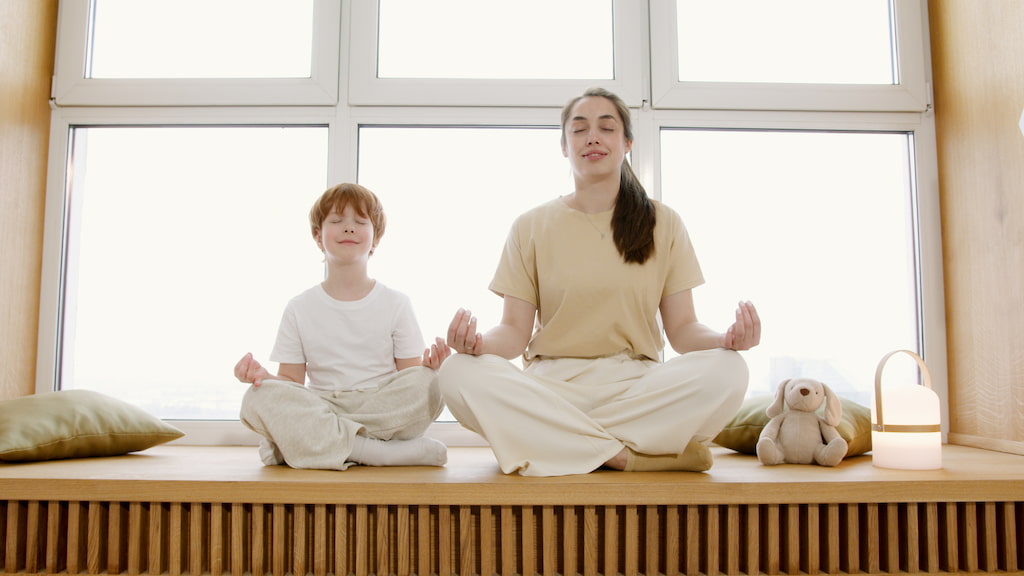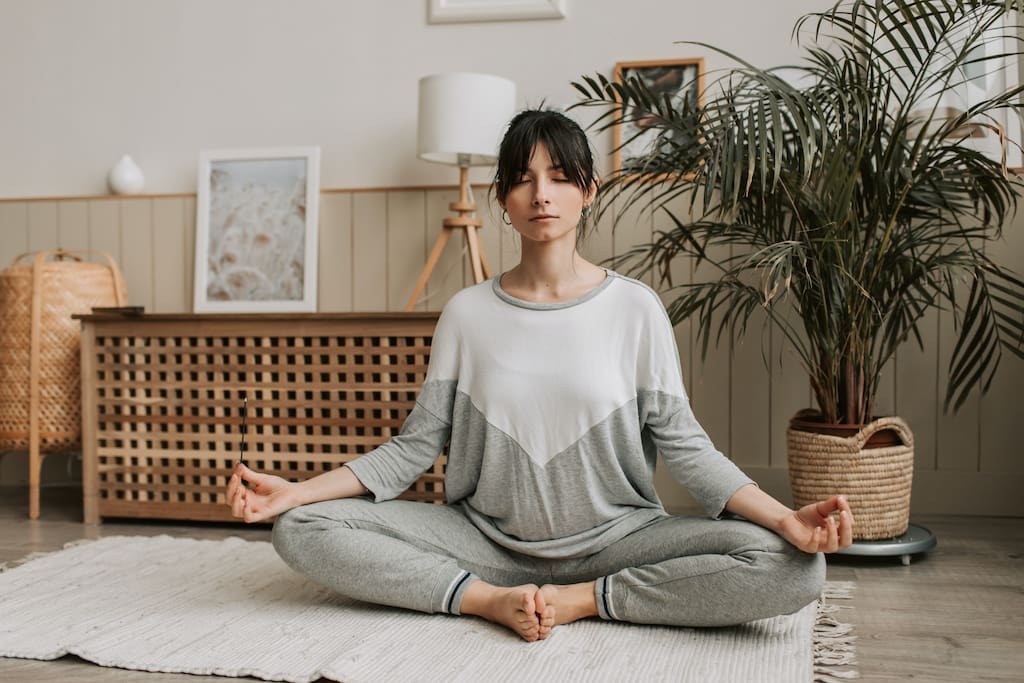What’s Holding You Back from Giving Meditation a Shot?

Contents
We’ve all heard of meditation but not all of us may be aware of the full benefits of daily practice. Often confused with other relaxation techniques or yoga, meditation goes way deeper. Did you know that we have 12 to 60,000 thoughts every day? What’s even more shocking is that 80% of these are negative; as our lizard brain takes control, we can lose focus, vision, or simply lack direction. But that’s just the beginning. Whatever challenges we face in our life — the loss of a job or a loved one, stress or anxiety, disease or recovery, and so forth — meditation can be a huge help. Aside from helping us heal, meditation can improve our lives and make us more open to gratitude, forgiveness, and compassion. On top of all this, meditation has proven to improve the areas in our brain that foster memory, focus, and learning. For many people, the science behind meditation seems new or incomprehensible. But the benefits of meditation are actually equally accessible to all. We just need to explore it and give meditation a go and find out what works for us — and what we can take with us.

The Top 5 reasons people hold back from trying meditation
“Touch your inner space, which is nothingness, as silent and empty as the sky; it is your inner sky. Once you settle down in your inner sky, you have come home, and a great maturity arises in your actions, in your behavior. Then whatever you do has grace in it. Then whatever you do is poetry in itself. You live poetry; your walking becomes dancing, your silence becomes music.”
– Osho
Here are some common misconceptions about meditation:
Lack of time
Many of us live hectic lives. But that doesn’t mean we can’t find 5 minutes every morning and evening to try meditating. We find the time to drink, sleep, and eat. If you have time to breathe, that means you also have time to meditate.
Fear
Starting something new can be exciting but also scary. Our fear of the unknown can prevent us from achieving our full potential. Meditation helps us fight fear and explore new things outside of our comfort zone by empowering our unconscious. Don’t be afraid of what you will discover about yourself.
Misconception
I used to think that meditation was for monks (which is also the case) or Buddhists. I thought it was spiritual practice. Yet the beauty (and truth) about meditation is that it’s totally accessible to every person on earth. Anyone can benefit from meditation, whoever they are.
“It’s not for me”
Many people who lead physically active lives claim that meditation isn’t right for them. Meditation may seem like a Zen activity better fit for yogis or monks. But meditation can benefit us all, no matter our lifestyle or goals in life. The point is to embrace the right practice and make it part of your daily schedule — or life journey.
“I will fall asleep”
When I first introduced meditation to my circle of friends back in Asia where I practiced in various countries — from Buddhist temples in Japan and Thailand to yoga studios and retreats in Bali, Indonesia — I heard a lot of people say “I’m afraid that I’ll simply fall asleep if I close my eyes”. However, closing your eyes involves focusing on the moment — which requires total awareness as we breathe.

What are the benefits of meditation?
Meditation offers us paths to inner peace, happiness, transformation, and positivity. But it doesn’t work instantly. As we begin and then deepen our practice, we may feel some true benefits in the short-term. Here are some things that meditation can help with:
- Healing: We all face dramatic events in our life (death, breakups, illnesses, job loss, accidents, surgeries, and more) as well as stressful events that can lead to anxiety or depression. As we experience life’s difficulties, our body, soul, and mind seek a quick “fix”. However, meditation isn’t medication; rather, it’s a way of looking at ourselves with our eyes open wide and exploring what we can change, what we are, and how we function as human beings. By offering us a path to healing, we can rebuild ourselves and take a transformative journey to find our true self — no matter how chaotic our life is.
- Emotional regulation: We often lose control when we are deep in thought or experiencing intense emotions such as anger, fear, and anxiety. Meditation brings us to the moment, giving us space to regulate our feelings. As we explore the present and look at things without judgment, we learn how to manage our emotions. As life goes on, we find we have better focus, control, and awareness of our inner self, and stop being too hard on ourselves. We can learn to accept, let go, and open ourselves up to new levels of consciousness as we regulate our emotions.
- Compassion: Compassion is a word that’s often misunderstood. It describes how we perceive other people’s pain or feelings. Compassion comes from the desire to relieve another’s suffering. All human beings are capable of experiencing compassion, gratitude, and love. Meditation enables us to embrace the concept, to feel it, and to live it every day. You might think, “But wait, we live in a society where only wolves thrive. Why should I show compassion towards such people?” — But compassion has no boundaries. The child within us feels compassion for the essence of every human being, each creature on earth, and each thing.
- Self-love: We underestimate the importance of self-love, and wrongly associate with being an egoist or narcissist. Don’t confuse self-love with selfishness. Self-love is a crucial part of living a happy life without allowing yourself to be burdened. Meditation provides us with the right tools to cultivate self-love, which in return can affect not only our relationships with ourselves but with others, too. As we love ourselves more and understand our strengths and limits, we can develop a deeper intimacy both with our true self and with others.
So, how should I start to meditate?
There’s no right or wrong way. As with most practices, the important thing is to try. You could speak to a meditation teacher, attend a meditation retreat, explore diverse meditation techniques, and slowly find the path that is best for you. Or simply start meditating by closing your eyes, holding your back straight with palms positioned gently on our knees and facing up to the sky, and doing a body scan. Focus on each part of your body, from your head to your feet and from your feet to your head. Or you can just breathe in and out 4 times, for 5 minutes each day. That’s enough to say, “Guess what? I finally started to meditate.


